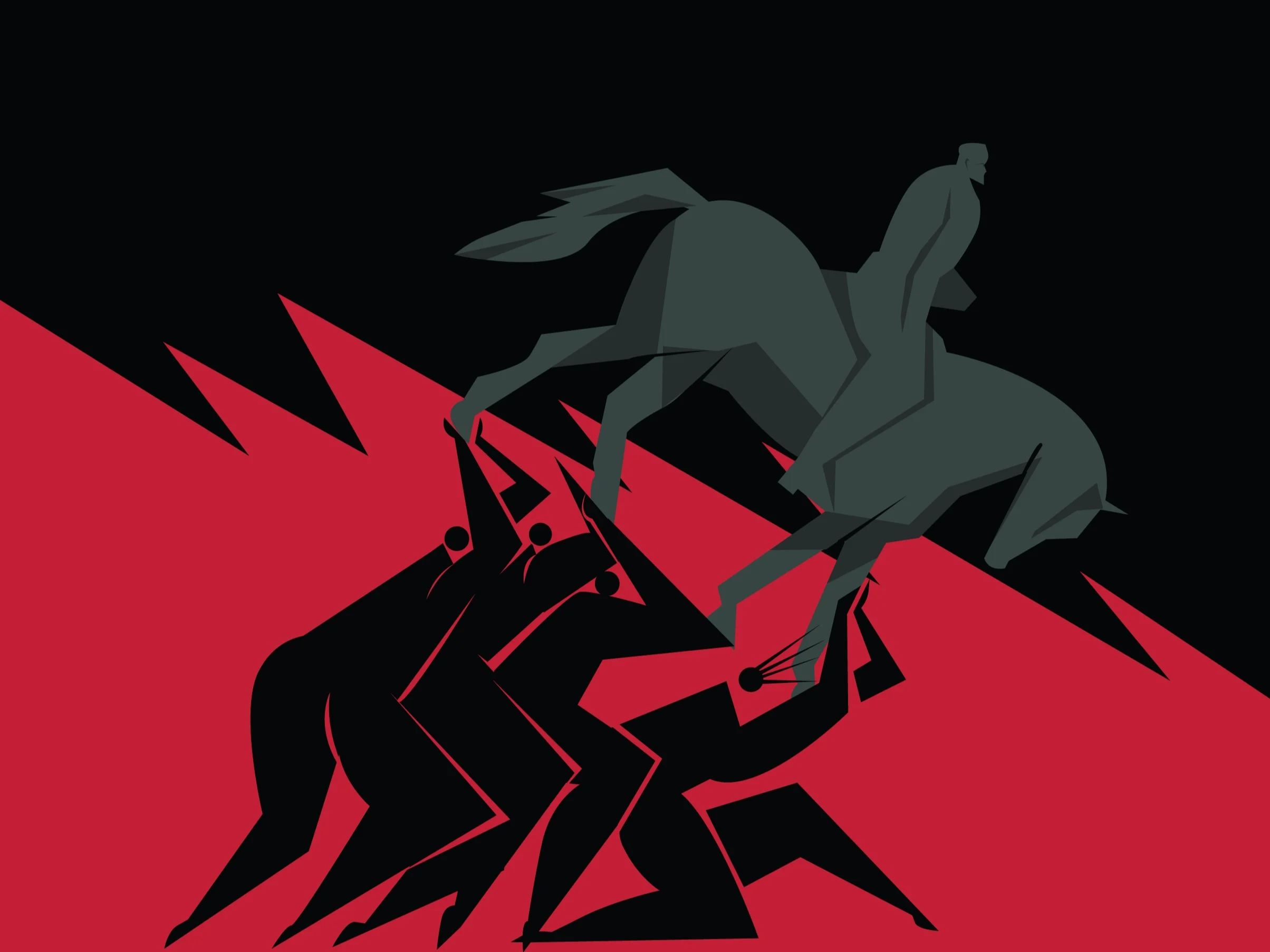
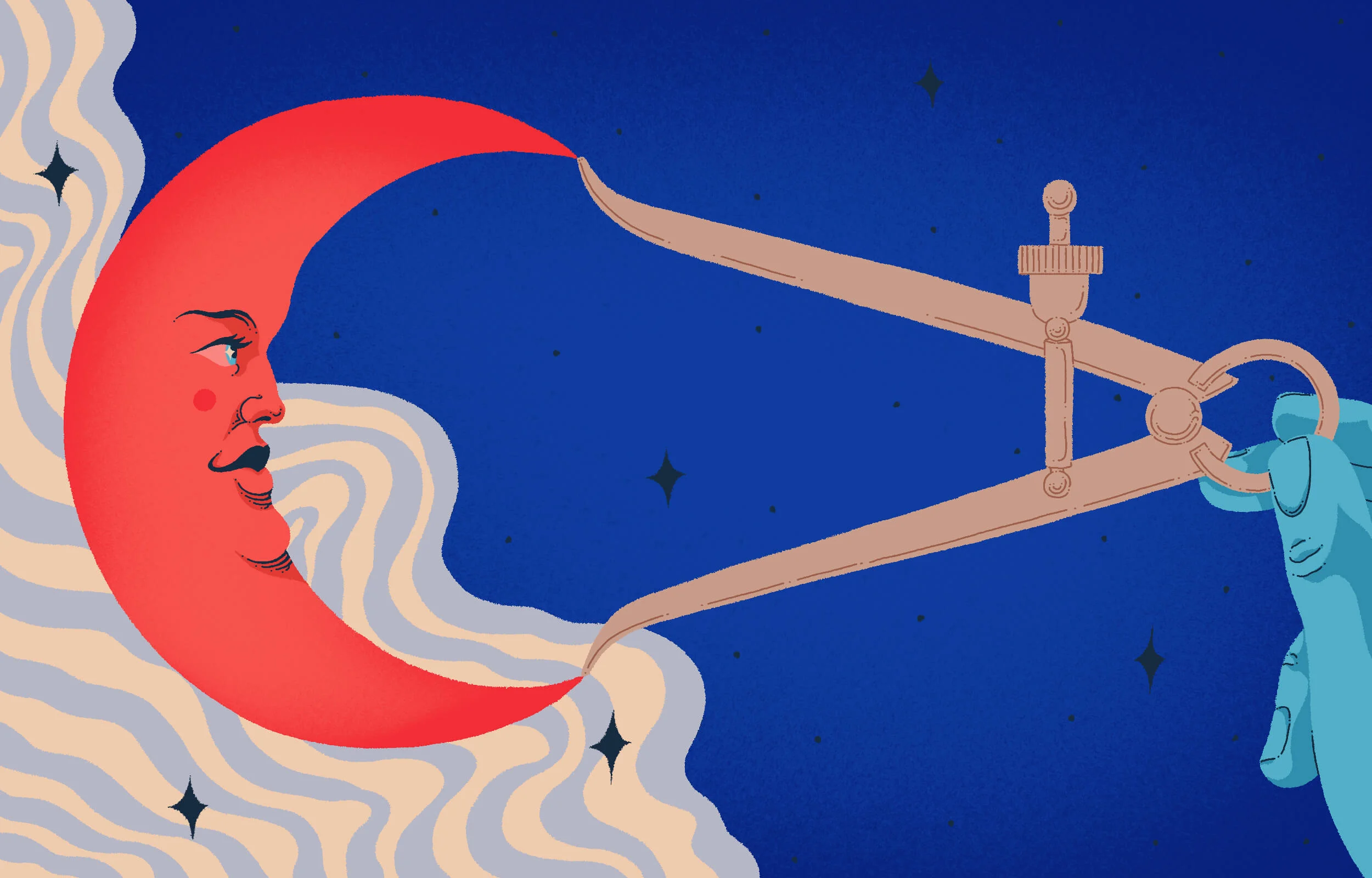
A strange quirk of being a creative is that the more successful you become, the less time you have to actually focus on doing the work that made you successful. In this essay, writer Roxane Gay – who narrated our recent “Welcome to WeTransfer, please leave” brand video – explains what happens when you become popular, and how hard it can be to make time for the thing that started it all.
Illustrations by Alessandro Cripsta.
When my high school English teacher, Mr McGuinn, told me to write every day, I took that advice to heart. I thought he was offering precious wisdom he had crafted for me and me alone. From that moment on, I wrote every day, convinced I had found the key to being a real writer. As time passed, I learned this notion of writing every day was, in fact, fairly common writing advice but I remained committed to the practice in the hopes that such discipline would make me a real writer, a good writer, a great writer.
For most of my 20s and 30s, I was in college or graduate school and also working a full-time job or stringing together a few part time jobs. I would get home after a long day and sit at my desk, always in the dark, and write short stories, most of which were not very good. I smoked a lot of cigarettes because it made me feel more like a real writer to have a tangible vice, to look contemplatively into the distance as cigarette smoke curled around my face. It was comforting, I suppose, to put so much energy into making myself feel like a real writer because I was not having any success finding external validation. I would submit work, relentlessly, and have that work rejected, roundly. I wanted to make it as a writer even if I had no idea what “making it” might look like.
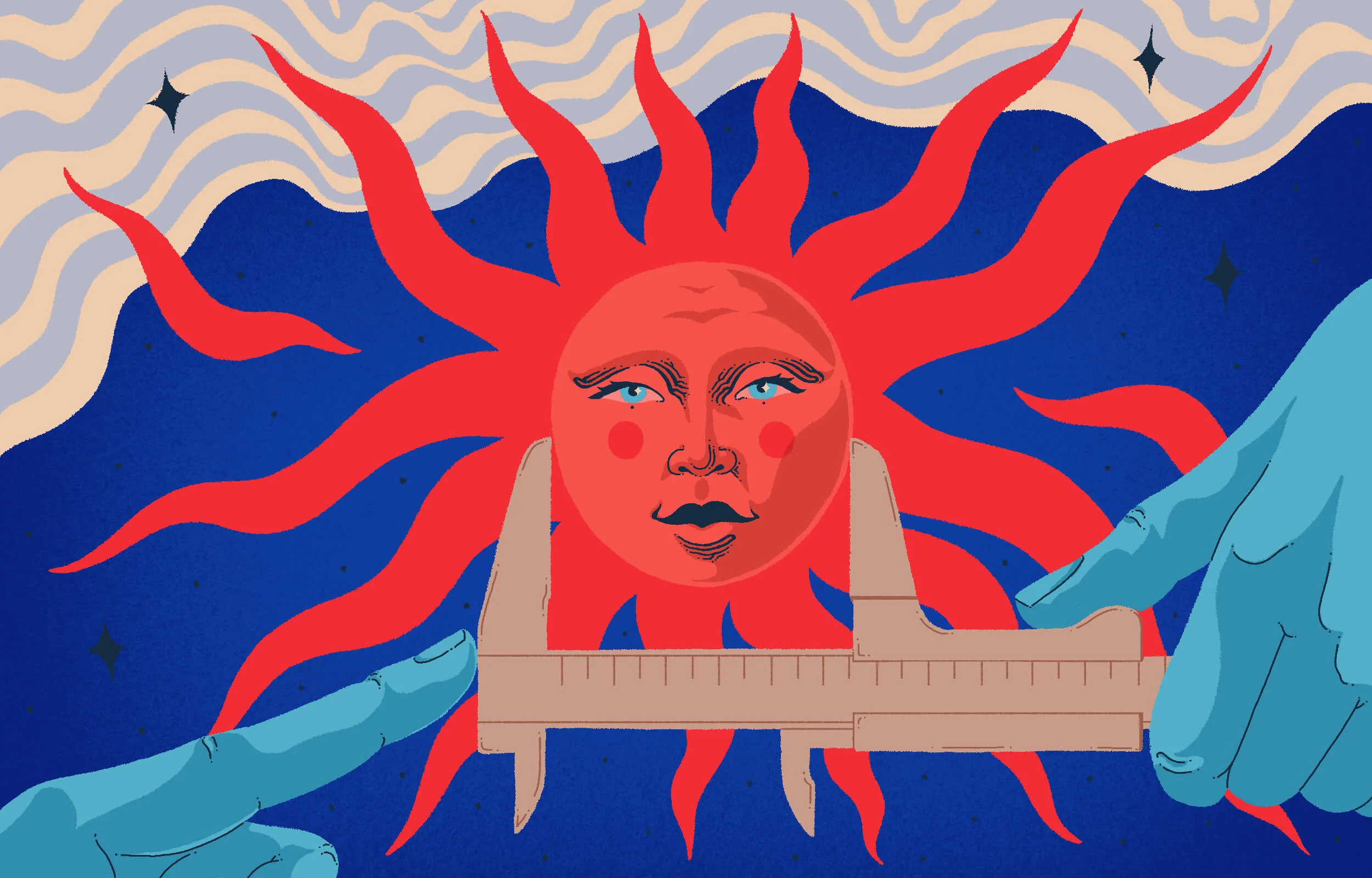
Writing was a muscle I exercised until that muscle became what I needed it to be.
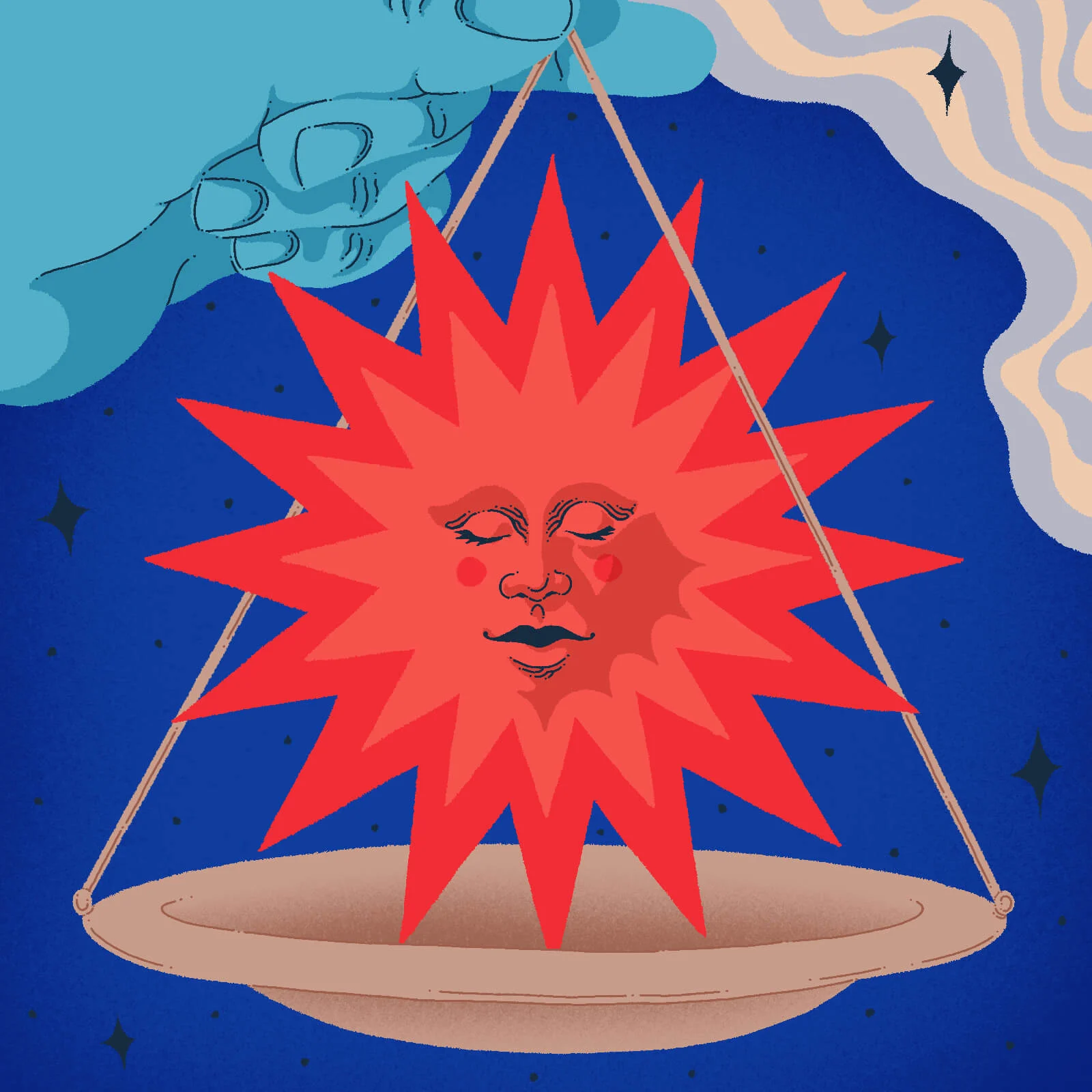
As I continued to write every day, I also read every day, for the pleasure of the words of others and what I might learn from them. I workshopped my stories in classes and in online writing forums. I wrote some more. Writing was a muscle I exercised until that muscle became what I needed it to be. I made the time, all the while understanding what a privilege it was to be able to make that time. My work started receiving fewer rejections. Still, I wrote every day so my writing muscle would stay strong. I began writing essays, cultural criticism mostly, using non-fiction to articulate my understanding of the world or my place in it. When something significant happened in the world and an editor reached out to me – asking me to write an essay in response immediately – I was able to do so because I had been writing every day for more than 20 years. My blind faith in that practice paid off.
Along the way I learned that the more you succeed as a writer, the less time you have to actually think or read or write.
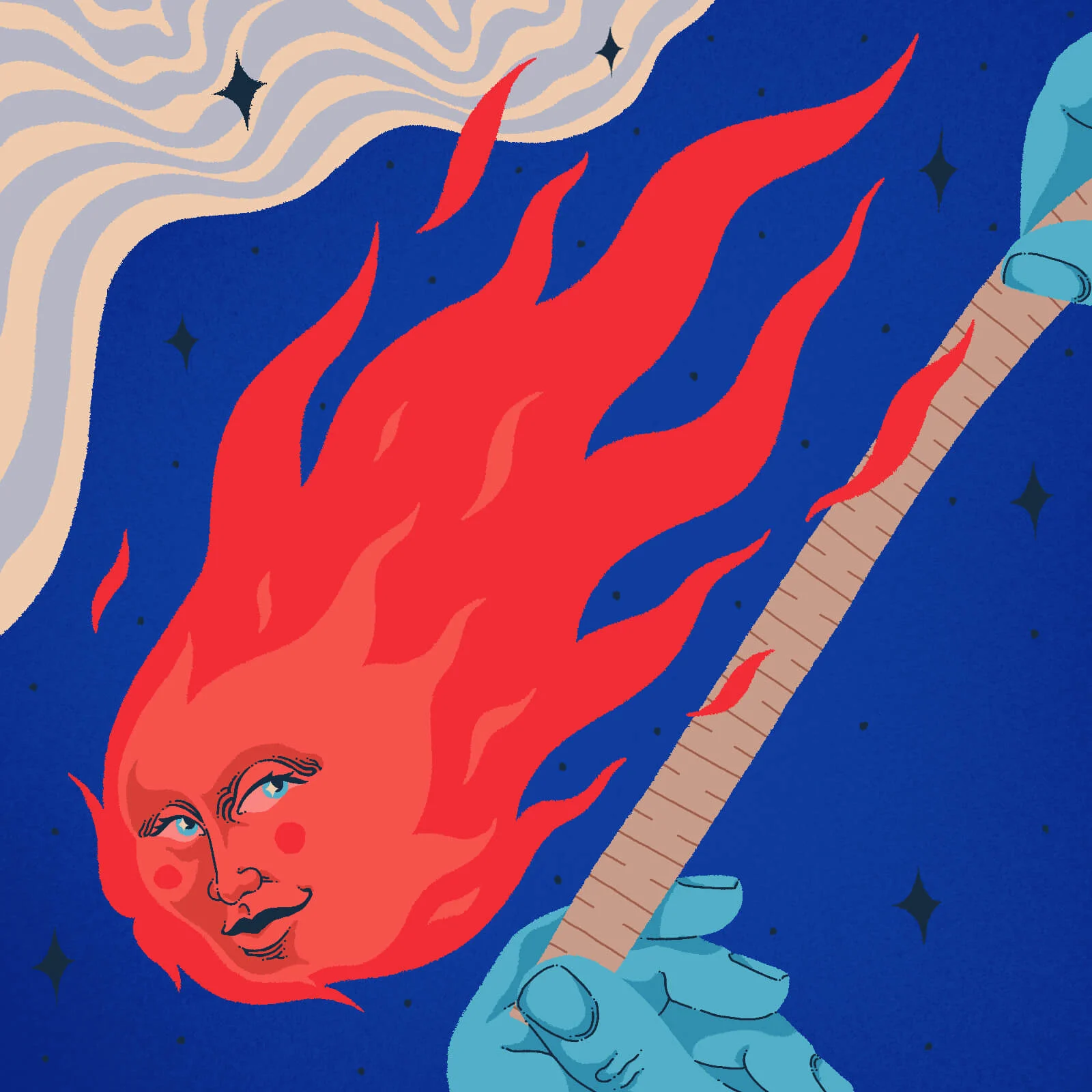
The summer after my first year as a professor, I decided to write a novel. I wrote for up to 10 hours a day for four months to develop the first draft of An Untamed State. It was an exhilarating experience to have so much unencumbered time to immerse myself wholly in a world of my own making. It was some of the most fun I have ever had as a writer because everything was at stake but also nothing was at stake. I was writing for myself and was not at all concerned with what would happen to the work, not just yet.
Two very long years and two revisions later, I sold that novel and it came out in 2014. I assembled an essay collection and that sold too. My career blossomed. The dream had been to write a good book and sell it. I did not dare dream beyond that, so every moment since then has been thrilling in one way or another. Along the way I learned that the more you succeed as a writer, the less time you have to actually think or read or write. I learned there is the business of writing and writing itself and they are two very different things. Writing is an act of creation and the business of writing is doing everything in your power to ensure that you will have the opportunity to create again.
I do not know what to make of my career, or the way people respond to my writing. I do not know what to make of the opportunities that come my way, though I take none of it for granted. Now, I travel constantly. I speak at colleges and universities across the United States. I tour abroad. I write in fits and starts. I write in pockets of stolen time. I write on airplanes, quite a lot, because the internet on planes is terrible and therefore largely unusable for the distractions that keep me from focusing on writing when I am at home. I write in airport lounges as men in wrinkled suits talk loudly into ear-bud microphones about very important business. I write in hotel lobbies, watching people in Boston and Austin and Chicago and Denver and Sydney and Spokane. I write in hotel rooms with the blackout curtains pulled tightly together to keep out all light. I write in green rooms during the downtime before I go on stage. When I am very lucky, I write in my own house – mostly sitting on my couch, the television on in the background, the back door open to the night.

Yes, I still write every day but on so many days, the fact of that writing is tenuous.
Writing remains one of my greatest joys. I find myself taking risks by working in new genres – comic books, screenplays, television shows, a podcast, a magazine. And in taking risks, I am reminded, with some frequency, what failure feels like. Those reminders are not especially welcome, though I am sure these failures are edifying in some way.
Yes, I still write every day but on so many days, the fact of that writing is tenuous. At the end of a long day, when I finally get a chance to open my laptop, I scroll mindlessly on Twitter or read the news or try to answer a few emails. Then I remember I am a writer who should be writing, so I open up a Microsoft Word file for any given project, and read what I’ve previously written to orient myself. I tap out a few lines. I procrastinate some more. I tap out a few more lines. I tell myself I have written for the day and have, therefore, done as I was counseled to do so long ago.
What I crave more than anything is the luxury of those times when I start to write, and though I don’t yet know the shape of what will come, I write my way forward. I remember that the joy of these moments is the only thing that truly makes me a writer.


